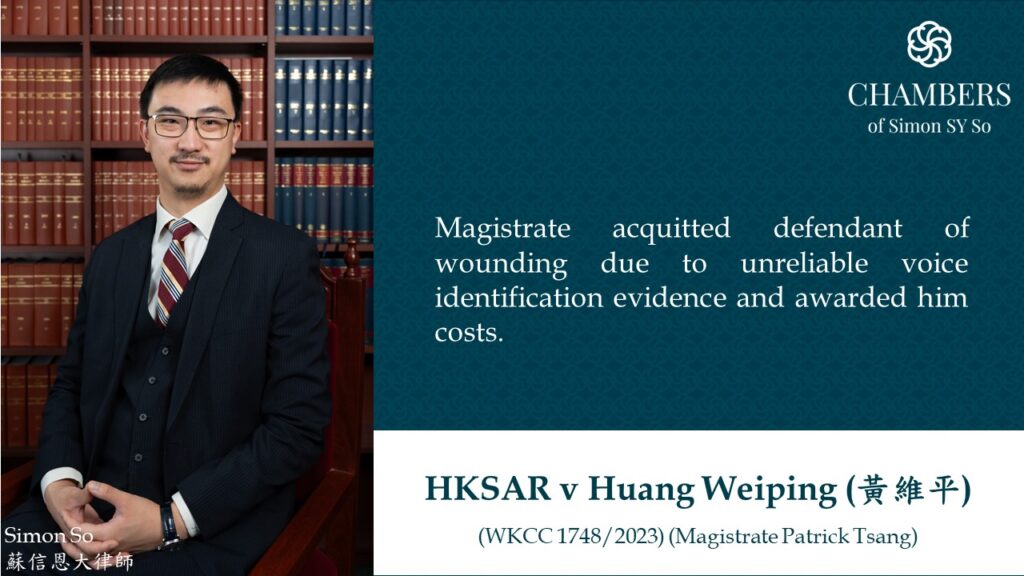Magistrate acquitted defendant of woudning due to unreliable voice identification and awarded him costs
HKSAR v Huang Weiping (黃維平)
31 October 2023

Magistrate Patrick Tsang acquitted a defendant charged with wounding his wife and awarded him costs.
The defendant, a person with a clear record, was charged with wounding his wife (“the Complainant”). The prosecution did not call the Complainant to give evidence. It was the prosecution case that the defendant rang a relative (“PW2”) of the Complainant and said he fought with the Complainant and the Complainant was vomiting blood (同老婆打交,打到佢嘔血) (“the Phone Conversation”). PW1, a police officer, took a photo of the call history of the defendant’s phone (“the Photo”). The defence opposed the admissibility of the Phone Conversation and the Photo.
The Magistrate ruled the Photo inadmissible. According to Sham Wing Kan v Commissioner of Police [2020] 2 HKLRD 529, it is essential for the police officers to first obtain a warrant before conducting a search of the call record of the Defendant’s phone. For a warrantless search, police officers should make an adequate written record of the purpose and scope of the warrantless search as soon as reasonably practicable after the search. No record howsoever was made. Insofar as the Phone Conversation, whilst the Magistrate ruled the same to be admissible, the Magistrate did not allow the prosecution to invite PW2 to identify the person in the Phone Conversation. In the course of the investigation, the prosecution never invited PW2 and/or the defendant to take part in voice identification. Further, PW2 admitted under cross-examination that she was playing “Mahjong” when the Phone Conversation took place. Applying R v Flynn & St John [2008] 2 Cr App R 20 (a direction adopting the traditional Turnbull direction for visual identification in cases of voice identification) and taking all things into consideration, the Magistrate considered that he could place no weight at all on the identity of the person in and/or the content of the Phone Conversation. The Defendant is, accordingly, acquitted.
Having heard submissions, the Magistrate agreed that the prosecution should have halted the prosecution once it was known that the Complainant refused to give evidence. The Magistrate was of the view that the prosecution’s evidence was extremely flimsy. Accordingly, the defendant was also entitled to his costs.
Simon So represented the defendant in the 2-day trial as sole advocate.
